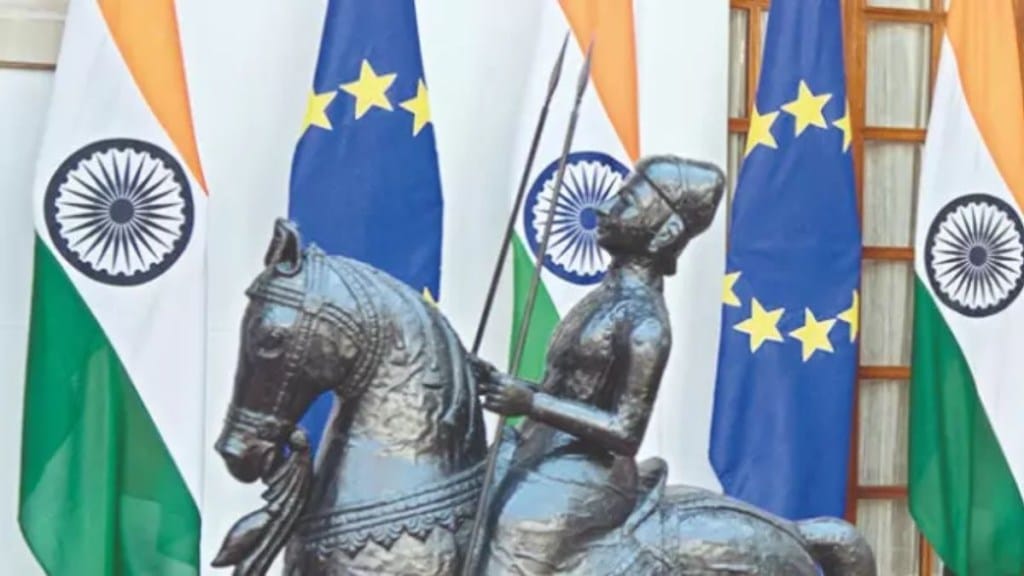Commerce secretary Rajesh Agarwal will visit Brussels later this week as the negotiators from India and the European Union (EU) will be wrapping up their 14th round of talks on the proposed Free Trade Agreement (FTA).
Agarwal will meet his counterpart in the European Commission (EC) Director General for Trade (DG-Trade) Sabine Weyand to take stock of the progress made so far and plot the path ahead to conclude the negotiations by year-end.
After Agarwal’s visit, Commerce and Industry Minister Piyush Goyal will also be in Brussels on October 27-28 for discussions related to the trade agreement.
The 14th round of talks on the FTA began on Monday and will continue till Friday. The Indian team led by Special Secretary in the Department of Commerce L Satya Srinivas. During the 13th round EU trade commissioner Maros Sefcovic and the agriculture commissioner Christophe Hensen were also in New Delhi to guide the negotiations.
What did Goyal say?
“Our entire team is there. We are hoping to work together in a spirit of deep understanding of each other’s sensitivities so that we can conclude a very equitable, fair and balanced free trade agreement between the $20 trillion EU of 27 countries and India, the fastest growing large economy in the world today, we complement each other,” Goyal told reporters here.
“We will make every effort to meet the leaders’ expectations and complete the negotiations before the end of the year. And I see tremendous potential and possibility,” he added.
The deadline of year-end for FTA was set in February by both sides when president of the EC Ursula von der Leyan visited India with the full college of commissioners.
In June 2022, India and the EU resumed negotiations for a comprehensive FTA, an investment protection agreement and a pact on geographical indications after a gap of over eight years. It was stalled in 2013 due to differences on the level of opening up markets.
Besides demanding significant duty cuts in automobiles and medical devices, the EU wants tax reduction in other products like wine, spirits, meat, poultry, and a strong intellectual property regime.
Carbon Tax by EU poses another concern
India’s demands in the negotiations is duty free access to its labor intensive imports and emerging sectors like auto, electronics. Another concern for India in the negotiations is the imposition of carbon tax by the EU on imports of steel, aluminium, cement and fertilizers from January 26. The tax imposed under the Carbon Border Adjustment Mechanism (CBAM) could put another barrier to India’s exports while tariff barriers are brought down further.
The FTA covers 23 policy areas or chapters, including Trade in Goods, Trade in Services, Investment, Sanitary and Phytosanitary Measures, Technical Barriers to Trade, Trade Remedies, Rules of Origin, Customs and Trade Facilitation, Competition, Trade Defence, Government Procurement, Dispute Settlement, Intellectual Property Rights, Geographical Indications, and Sustainable Development.
The FTA is crucial as the 27-member bloc is the biggest trading partner of India with bilateral merchandise trade at $ 136.2 billion, though the US remains the biggest market. Exports from India stood at $ 75.8 billion while imports were $ 60.6 billion in 2024-25. Both sides also have a very robust services trade too which stood at $ 70 billion in 2023. India has a surplus of $ 9.25 billion.

